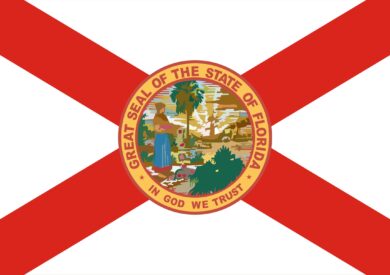
 Popular Cities For Lending in Florida
Popular Cities For Lending in Florida
Hollywood
Jacksonville
Miami
Miramar
Orlando
Pembroke Pines
Port St. Lucie
St. Petersburg
Tallahassee
Tampa
In the Florida real estate market, grabbing properties before your competition is essential for making the best deals. Although real estate investors sometimes go the traditional route and seek bank loans, the process is anything but speedy.
When time is of the essence, waiting for the lengthy process of getting approval is not an option for most investors. Florida hard money lenders specialize in providing hard money loans which provide quick funds to investors. These loans are for a non owner occupied property or in some cases for business purpose loans.
Florida Hard Money Lender FAQ’S
Below are some of the most frequently asked questions we get regarding hard money loans and lenders in Florida.
What Do Florida Hard Money Lenders Specialize in?
Florida hard money lenders specialize in providing short-term, creative financing for real estate investors. If you seek a conventional lender to purchase an investment property, your loan request will be based on the property’s value and your assets. Your credit score, job, and finances will be scrutinized intensely. Hard money lenders base their final loan decisions on the after-repair value. The ARV represents the potential value of a property after all repairs have been accomplished.
What are the Benefits of Florida Hard Money Loans?
Florida hard money loans offer advantages that traditional banks cannot. Lenders like Acamnet Financial offer a higher level of flexibility than banks. When qualifying for this type of loan, lenders do not delve too deeply into the finances of real estate investors. In most cases, simply present the property and your plans, which saves you the hassle of gathering countless financial documents.
Do Florida Hard Money Lenders Look at my Credit Score?
One of the greatest benefits of working with Florida hard money lenders is the lack of credit score requirements. One of the first things a bank does is check your credit score. You can get approved for a hard money loan in Florida even if you have bad credit or poor credit, bankruptcies, and foreclosures in the past. Florida Hard money lenders primarily care about the property you are purchasing.
What is the Interest Rate & Points for Hard Money Loans in Florida?
Interest rates for hard money loans in Florida are typically higher than traditional bank loans (conventional loans) because of the greater risk lenders must take on when approving loans. When searching for a hard money lender near me in Florida, you will find average interest rate is between 8%-15%. You should also be aware that lenders sometimes charge points that are meant to offset their administrative costs. Each point represents 1% of the total loan amount. The average points lenders charge is between 1 to 3. Some lenders may charge up to 10 points. These points are due upfront or at closing, depending on the lender.
What Should I Look for in a Florida Hard Money Lender?
There are many benefits to working with a Florida hard money lender. You just need to make sure you are working with the right lender. You can rely on Acamnet Financial Group when you need us most. We offer reliability, consistency, experience, and support. As a real estate investor, you know the importance of grabbing the best property deals when they become available.
How can Hard Money Lenders in Florida Help Me?
Whether you are new to real estate and real estate projects or an old pro, you know having the capital to purchase real estate is essential. Without funds, you will miss out on real estate transactions. When you partner with hard money lenders in Florida, you will quickly get the money you need without jumping through the hoops of traditional bank lenders.
How do I get a Hard Money Loan in Florida?
When you want a hard money loan in Florida, begin by preparing the property information. Location, size, purchase price, after repair value, repair costs, etc. In most cases, the financing will be based on these numbers. Then, apply for a hard money loan in Florida using this information and supply some financial information. Then, an appraisal will be ordered to assess the loan-to-value ratio, which will influence the loan amount.
How do I Refinance a Florida Hard Money Loan?
Refinance a Florida hard money loan will involve moving from a high interest, short term loan to a longer term, usually lower interest rate loan. Typically a conventional type of loan. When refinancing a Florida hard money loan you will find it will have a more stringent set of guidelines. You will need to have sufficient credit and income qualifications. As the lending landscaping and regulations constantly change, you want to consult a knowledgeable conventional loan expert.

Current Real Estate Trends In Florida (2024)
This study provides an objective analysis of current real estate trends in Florida. The goal is to give a comprehensive overview of the housing market in the state, including indicators and factors that are affecting it.
The research is based on data and aims to provide valuable information for buyers and investors. We will start by taking a look at the housing market in Florida, highlighting relevant trends and developments.
We will then provide some buying tips for individuals interested in purchasing properties in the state, such as location, pricing, and market conditions.
The study seeks to give a thorough understanding of the current real estate landscape in Florida, helping readers make educated decisions about their investments.
Housing Market Overview
The Florida housing market has been flourishing recently, with both house prices and sales volume increasing. The heightened interest in this area has been driven by factors such as increasing population, low loan rates, and out-of-state purchasers. Furthermore, new constructions have been initiated to meet the growing demand.
It is clear that the real estate market in Florida is in a healthy state. Population growth has been a major driving force, as more people move to the area. Low interest rates are also playing an important role, making it easier for buyers to purchase a home. The influx of out-of-state buyers has also contributed to the market’s growth.
The market has responded to the increased demand by increasing the number of new homes being built. This is providing potential buyers with more options and helping to keep prices stable. Furthermore, the construction of new homes is helping to create jobs and stimulate the economy.
Overall, the housing market in Florida is in an excellent state. Population growth, low interest rates, and out-of-state buyers have all contributed to the market’s success. In addition, the construction of new homes is helping to meet the growing demand and create jobs. This market has a bright future ahead of it.
Buying Tips
When purchasing property in Florida, it is essential to be well-informed of the prevailing market conditions. Evaluating current trends can be a great help for potential buyers.
Analyzing factors such as inventory levels, median home prices, and market saturation can give you a good indication of the current state of the market. Additionally, researching appreciation rates and rental yields from previous years can give you a better understanding of what to expect when making a purchase.
With this knowledge, you can make smart decisions that will benefit you financially.
Predictions
Careful examination of the current state of the Florida real estate market can provide potential buyers with useful information about its future prospects, helping them make decisions that could bring them financial gain.
Demand for properties in the area is seen to be on the rise, likely due to low interest rates, beneficial tax policies, and a surge of out-of-state buyers.
These trends are expected to continue, making the Florida real estate market a potentially profitable investment in the coming months.
Sources
https://www.noradarealestate.com/blog/florida-housing-market
https://www.bankrate.com/real-estate/housing-market/florida/
https://www.houzeo.com/blog/florida-real-estate-market/

All About Florida
Florida, the 22nd largest state in the U.S., is a diverse and unique region with a rich history and vibrant culture. Its long coastline, beautiful beaches, and warm climate make it a popular tourist destination. Major cities like Miami, Jacksonville, and Tampa Bay contribute significantly to the state’s economy, driven by tourism, hospitality, agriculture, real estate, and transportation sectors.
Florida is renowned for its beach resorts, amusement parks, and attractions like Walt Disney World and the Kennedy Space Center. The state’s population is diverse, with influences from African, European, Indigenous, Latino, and Asian cultures. Over the years, Florida’s colonial history and migration waves have shaped its identity, attracting celebrities, athletes, and migrants from both domestic and international locations.
Notable features of the state include its tropical climate, coral reef, Everglades National Park, and numerous islands.
This article will explore the geography, history, economy, climate, and cultural influences that define Florida.
Geography
Florida, the 22nd largest state in the U.S., boasts a unique geography characterized by a peninsula between the Gulf of Mexico and the Atlantic Ocean, granting it the longest coastline in the contiguous United States.
With its prime coastal location, Florida is home to a diverse range of ecosystems, including the world-famous Everglades National Park. This vast wetland is a UNESCO World Heritage Site and provides a habitat for numerous plant and animal species, including alligators, crocodiles, and a variety of birds.
Florida’s geography also offers a rich diversity of landscapes, from sandy beaches and crystal-clear springs to lush forests and rolling hills. These natural wonders have made Florida a popular destination for outdoor enthusiasts and nature lovers.
Transitioning into the next section about ‘history,’ Florida’s unique geography has played a significant role in shaping its historical development.
History
During the colonial period, Spain and Great Britain had control over different parts of the region now known as Florida.
Spanish exploration began in 1513 when Juan Ponce de León landed in Florida and named it ‘La Florida.’ Spain established settlements, including St. Augustine, in 1565, the oldest continuously inhabited city in the U.S. The Spanish introduced Christianity, livestock, and the Castilian language to Florida.
However, Spain’s control over the region was not uncontested. Great Britain also had a presence in Florida and built forts for defense, such as Castillo de San Marcos and Fort Matanzas. Eventually, Spain traded Florida to Britain in exchange for control of Havana. British settlers introduced sugar cane, indigo, and fruit cultivation, and Florida remained a Loyalist stronghold during the American Revolution.
The transfer of Florida to the United States occurred through the Adams-Onís Treaty, and Andrew Jackson played a significant role in the acquisition. This historical context sets the stage for understanding the economic development of Florida.
Economy
Various sectors, including tourism, hospitality, agriculture, real estate, and transportation, drive the economy of Florida.
As one of the top tourist destinations in the world, Florida attracts millions of visitors annually to its beach resorts, amusement parks, and warm climate. The state is home to attractions such as Walt Disney World and the Kennedy Space Center, which contribute significantly to its economic growth.
Florida’s agricultural industry is also crucial, with citrus fruits, sugarcane, tomatoes, and strawberries as significant crops.
The real estate sector also thrives, with a booming market for residential and commercial properties.
Furthermore, Florida’s transportation infrastructure, including ports and airports, supports trade and commerce.
The state’s vibrant and diverse economy sets the stage for the subsequent discussion of its unique climate.
Climate
With a unique combination of subtropical and tropical climates, Florida offers diverse weather patterns and natural environments.
In the north, the state experiences a subtropical climate with mild winters and hot, humid summers.
In the south, the climate transitions to a tropical climate with warm temperatures year-round.
Florida’s climate is influenced by its proximity to the Gulf of Mexico and the Atlantic Ocean, which brings warm ocean currents and frequent rainfall.
The state is prone to hurricanes, with the Atlantic hurricane season lasting from June to November.
The diverse climate in Florida supports a rich array of wildlife, including alligators, crocodiles, dolphins, manatees, and unique bird species.
These natural environments and weather patterns have shaped the cultural influences in Florida, creating a vibrant and diverse state.
Cultural Influences
Influenced by a rich tapestry of historical events and diverse migration waves, the cultural landscape of Florida has been shaped by a multitude of external forces. The state’s colonial history, with Spanish and British rule, has left lasting impacts on its culture.
African, European, Indigenous, Latino, and Asian influences are all reflected in Florida’s identity. The state has attracted prominent American writers, such as Ernest Hemingway and Tennessee Williams, who were drawn to its unique atmosphere.
Florida’s vibrant entertainment industry has also become a popular destination for celebrities and athletes. Additionally, the state’s political significance as a battleground state in presidential elections highlights its cultural diversity and influence.
Florida’s cultural influences are as varied and dynamic as its population, making it a fascinating and ever-evolving cultural hub.


 Popular Cities For Lending in Florida
Popular Cities For Lending in Florida